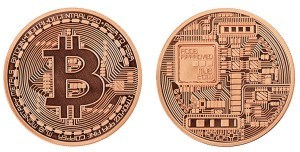Advocates of the free market have existed for hundreds of years, but they’ve always had to admit that their vision for how the economy should be managed is not exactly “perfect”. There can always be bad actors who take advantage of a system that embraces economic freedom, but various technologies related to Bitcoin are making it much harder for these bad actors to cause serious damage. The MtGox saga is a situation where there will be many customers hurt if the company is indeed insolvent and cannot attain a bailout, but the P2P nature of Bitcoin was not meant for centralized exchanges anyway. Sure, people can steal your bitcoins when you decide to hand your private keys over to someone else, but that’s not the true spirit of how Bitcoin is supposed to work. In the near future, more systems of decentralized trust will emerge as the principles behind Bitcoin are applied to many other aspects of our daily lives. Whether it’s Ethereum or some other new innovation that removes the need to trust third parties for contract resolution, the free market is about to get much more efficient.
Don’t Worry About the Banks
The first way that blockchain technology is going to make the free market more efficient is by removing traditional moderators of trust between multiple parties. Bitcoin is the first technology that allows a distributed network to come to a consensus about who owns what. As a currency and payment system, Bitcoin can replace that centralized nature of banking institutions. People will no longer need to worry about regulating banks to make sure they’re all acting in a fair manner because money won’t be stored in banks. Bitcoins can be stored on anything from a piece of paper to a smartphone. As long as an individual is able to secure their private keys, there is no reason to use an online wallet or PayPal-esque system. Storing bitcoins in a way that is both secure and convenient is a bit difficult right now, but new technologies are being created to solve that issue.
Other Examples of Decentralization
Getting out of the world of money and finance, another use of the Bitcoin blockchain is messaging. Instead of letting Google and the NSA snoop on every single message that you send to your friends on the Internet, you can use something like Bitmessage to store a message on a blockchain that can only be read by the recipient. A private key is used by the recipient to unlock the message, and all of the messages are stored on a distributed network. This kind of provably secure, open source system should be able to provide stiff competition to email in the near future.
Calling Out the Bad Actors
Although the technology behind Bitcoin will allow people to interact in a P2P manner instead of working through centralized 3rd parties, it’s still important for people to be able to trust each other. After all, the point of going through eBay or another third party service when you sell something online right now is that you don’t really know who is on the other side of the transaction. With systems such as Keyhotee, Namecoin, and Ethereum, a provably fair reputation system can be used to make sure that you’re always working with a trustworthy individual. This is similar to the rating system you can already find on eBay. It’s possible that everyone’s reputation will be managed by some sort of Bitcoin-based identity system, and everyone will be able to rate each other based on the interactions that they’ve had with people in the past. These names can also be used to access many different decentralized applications, which means there is one reputation system to rule them all. It’s like rolling your eBay rating, credit score, and other forms of reputation into one account.
Distributed Autonomous Companies
The last point that needs to be made involves distributed autonomous companies. These are basically companies that are completely autonomous and do not require the involvement of a centralized entity to control the daily business operations. Mastercoin, Ethereum, Invictus Innovations, and others are currently working on a variety of different distributed autonomous companies or decentralized applications. The distributed companies could be exchanges, social media apps, or basically anything else that you would find on the current Internet. Because of the power of the blockchain, software can now replace many of the centralized entities that we are used to dealing with in our daily lives. Not only will people be able to get a more decentralized, secure, and efficient product, but there will also be no overhead. There are no centralized owners of the business in a corporate office somewhere, and prices can be lowered due to this increased efficiency. Whether you call them distributed autonomous companies, decentralized applications, or distributed autonomous organizations, it’s obvious that these kinds of structures are going to be able to out-compete most of the dinosaur corporations and governments currently in power.






